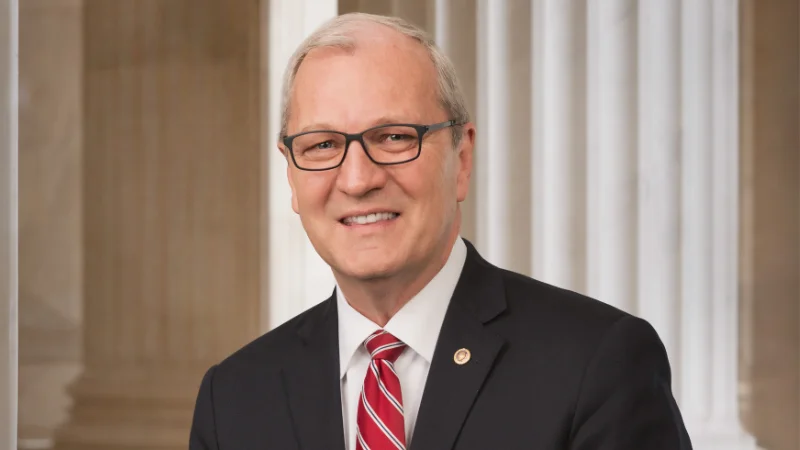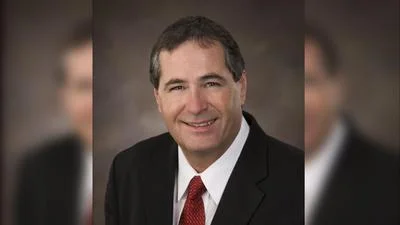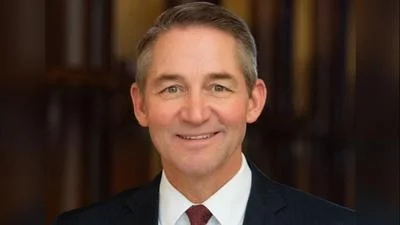Senator Kevin Cramer | Senator Kevin Cramer Official photo
Senator Kevin Cramer | Senator Kevin Cramer Official photo
WASHINGTON – U.S. Senator Kevin Cramer (R-ND) at a Senate Veterans Affairs Committee (SVAC) hearing questioned representatives from the U.S. Department of Veterans Affairs (VA) and U.S. Department of Health and Human Services (HHS) on the availability of long-term care services for veterans. He also dismissed a one-size-fits-all approach to improving staffing shortages.
https://www.cramer.senate.gov/imo/media/image/VA%20Hearing%206.7.23.png
Senator Cramer first questioned Mr. M. Christopher Saslo, Assistant Under Secretary for Health for Patient Care Services and Chief Nursing Officer for the VA and Scotte R. Hartronft, Office of Geriatrics and Extended Care Executive Director for the VA on nursing home challenges and the agency’s flexibility of local contracts.
“North Dakota, like a lot of rural states, has a lot of nursing facilities—some with a lot of beds available. They truly want to serve more veterans, but it's a clumsy relationship; contracting is complicated, getting paid is complicated. Can we simplify this for our veterans so our nursing homes can do what they want to do and serve them?” asked Senator Cramer.
“Knowing the challenges we have had with staffing, both in the private sector as well as in the VA, one of our goals is to really make sure we can maximize any of the efficiencies when it comes to contracting and placement and knowing we need to maintain the expectations of what we're allowed to do through our authorities,” replied Mr. Saslo. “Part of it is letting facilities that feel the more typical contract processes is too tedious, by all means, we should be talking with them about the Veterans Care Agreements and other avenues that might be better for them and their particular needs.”
Senator Cramer agreed providing flexibility and options is important, but expressed his concern about the VA’s bureaucratic nonsense creating challenges for facilities that want to better serve veterans.
He then questioned Jonathan Blum, Principal Deputy Administrator and Chief Operating Officer for the Centers for Medicare and Medicaid Services (CMS) about staffing challenges throughout the health care industry.
“I want to talk a little bit about the staffing challenges. It's not new to this industry. It's every industry, but it's particularly problematic in healthcare. I'm a little concerned about the talk of staffing ratio mandates and the impact it would have on an already very stressed situation. How does that policy help? Can we please change it, drop it, or admit we were wrong?” asked Senator Cramer.
“We are still in the process of thinking through what the best policy is for how to think about staffing requirements going forward. One of the things we see clearly in our data is those facilities that have more consistent, stable staff, have higher quality outcomes,” replied Mr. Blum. “We want to see it as a clear signal to the industry for how they build programs, connections. We'll build the workforce that we need over time to best serve Medicare, Medicaid, and our residents for our country.”
“The question is how do we get there? I love all your suggestions, working with local schools, introducing young people to the joys of long-term care. I'm not sure mandating ratios is going to get us there,” concluded Senator Cramer.
Background:
Earlier this year, Senator Cramer joined Senate colleagues in sending a letter to CMS Administrator Chiquita Brooks-LaSure. The Senators urged the agency to avoid one-size-fits-all staffing mandates for nursing homes and to support provider flexibility in addressing recruitment and retention issues.
Such mandates would exacerbate existing workforce shortages and place additional financial burdens on facilities in rural and underserved communities. Last year in North Dakota, staffing and financial challenges forced facilities to significantly suspend patient admissions.
Original source can be found here.






 Alerts Sign-up
Alerts Sign-up